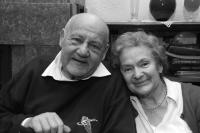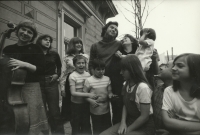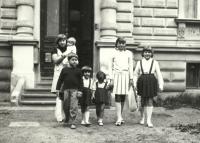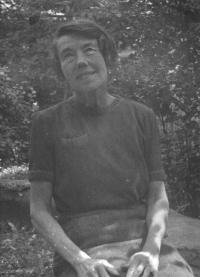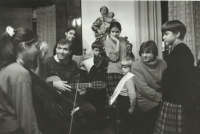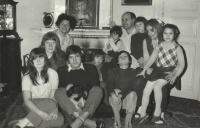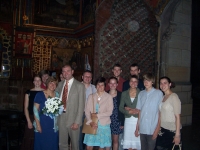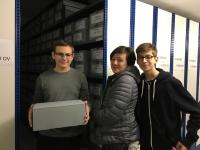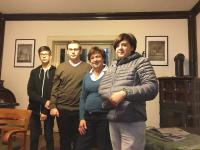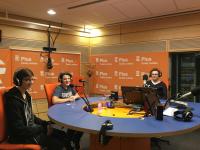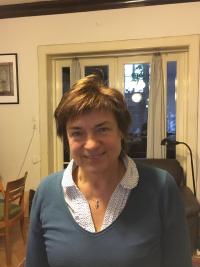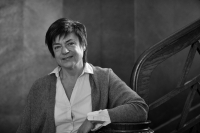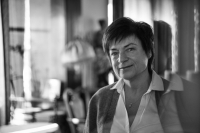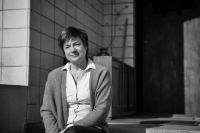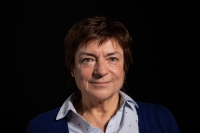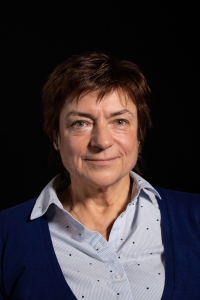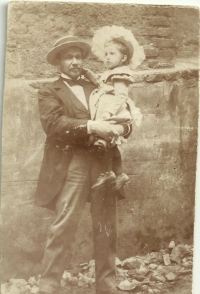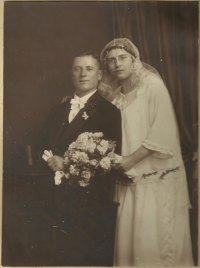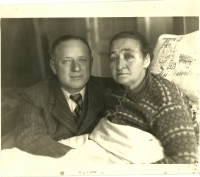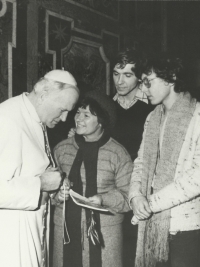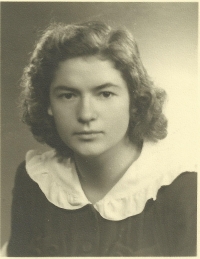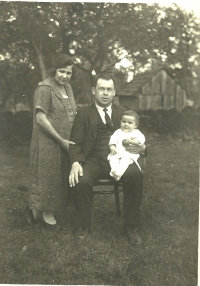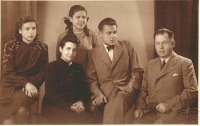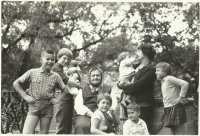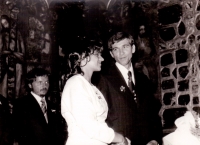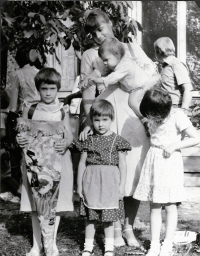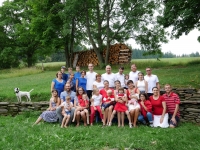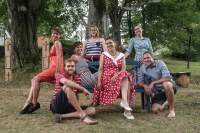Our parents taught us not to be afraid to step out of the line
Martina Hošková was born on November 21, 1956. She spent her childhood in Villa Pellé where her parents and her nine siblings lived together with the original owners - the Rieger family - and the artist Jan Koblasa, who had his studio in the basement. Her parents, Marie and Jiří Kaplan, were Christians and they raised their children in Christian faith. They were also very active in the Catholic dissent movement, they were translating books and organizing home seminars. Martina‘s father was arrested for disseminating banned books in 1979, but thanks to the support from abroad he was released three months later. Martina graduated from a conservatory and with her husband they had seven children. After spending twenty years at home and raising their children, she completed a study at the Catholic Faculty of Theology at Charles University. In 2017 she received the certificate of participants in the anti-communist resistance movement on behalf of her parents.

